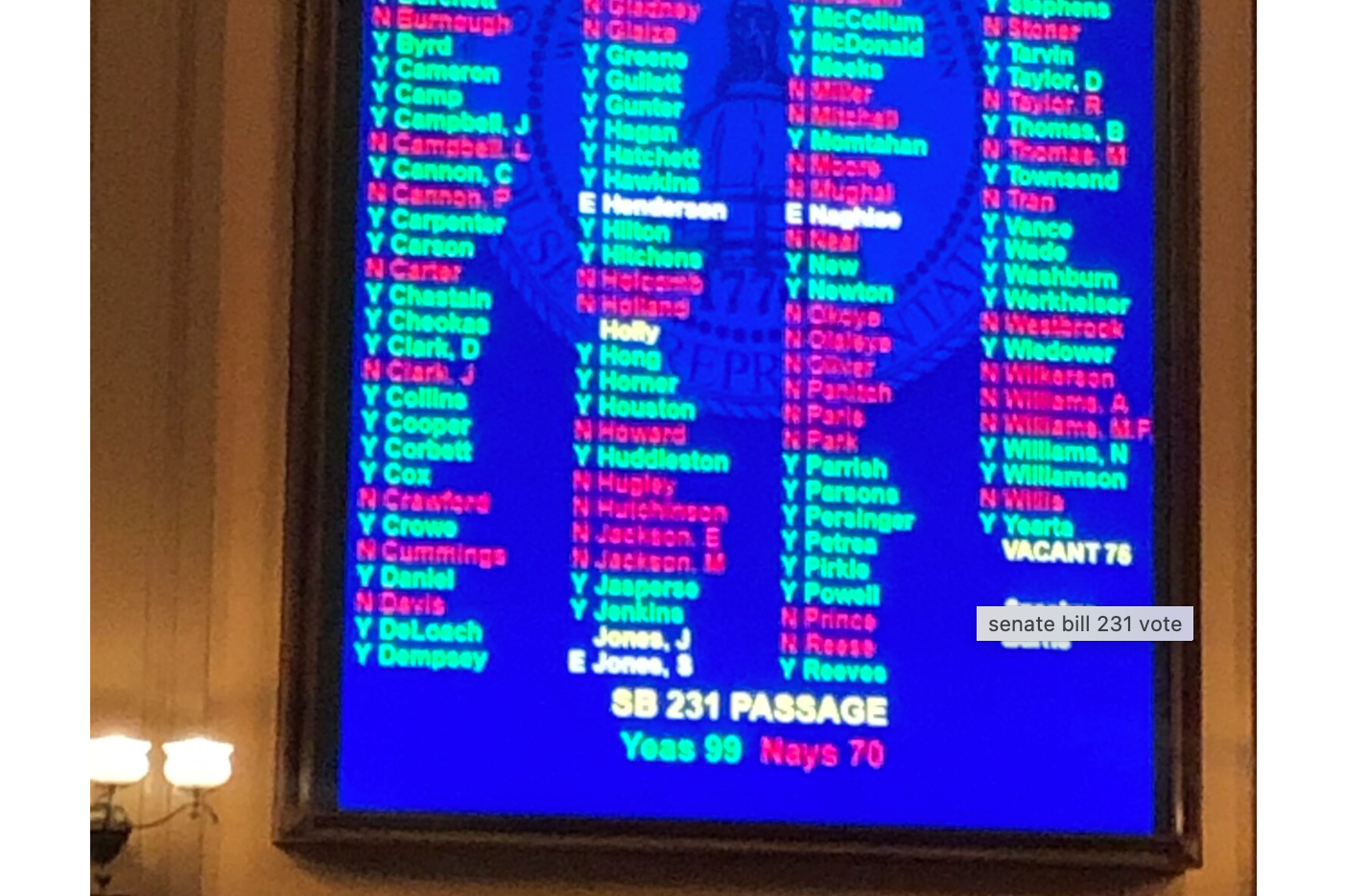Georgia Senate Bill 231, which calls for a referendum on giving Augusta’s mayor a vote on all commission decisions, passed the state House Tuesday, Rep. Mark Newton, R-Augusta, confirmed.
Newton and Sen. Max Burns, R-Sylvania, ushered the bill through both chambers after a request from Augusta Mayor Garnett Johnson and five Augusta commissioners.
“Sen. Burns and I received a written request from six of the 11 local elected city leaders requesting we consider a citizen referendum on allowing the mayor an equal vote on city/county business, as an effort to streamline and improve the operation of our government,” Newton said.

The bill passed along party lines 99-70, with Augusta’s four Democratic House members – Gloria Frazier, Lynn Gladney, Karlton Howard and Brian Prince – voting no. It now heads to Gov. Brian Kemp for approval.
If it passes, the bill calls for the referendum to appear on next year’s general primary ballot, where Augusta voters will have the final say on giving the mayor a vote. Since consolidation with Richmond County in 1996, the mayor has only voted in the event of a tie, and the setup allows commissioners to strategically abstain to avoid creating ties.
“We trust the citizens of Augusta to review this proposed advantages of this change and decide in a referendum whether to move forward,” Newton said.
Newton said he and Burns were receptive to further review of the Consolidation Act, which created the weak-mayor form of government that leaves most government decisions to the 10- (or possibly 11-) member commission. Other members of Augusta’s legislative delegation and city commissioners have suggested a broader look, possibly with help from an outside entity such as the Carl Vinson Institute of Government at the University of Georgia, was needed.

“We look forward to also working in any way needed with others who have suggested an even more thorough, overall study and assessment of our 1996 charter to evaluate potential additional areas where improvements may be made,” he said. “Passage of Senate Bill 231 is an excellent first step, allowing voters to decide this important issue.”








